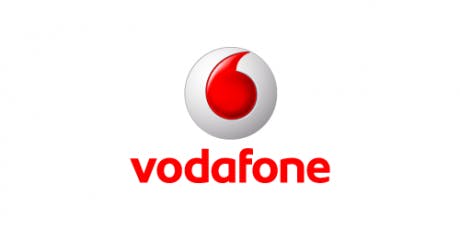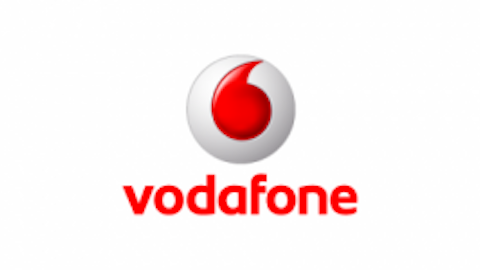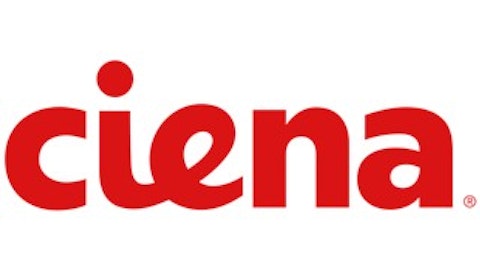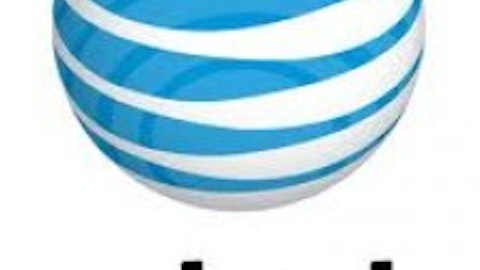Verizon Communications Inc. (NYSE:VZ) is one of the major American telecommunications company. Like others in the industry, Verizon provides internet, telecommunications and television services in the United States. Verizon offers investors reliable free cash flow and returns that cash flow to shareholders via a hefty 4.3% dividend. The investing thesis for Verizon is fairly straightforward: people tend to make phone calls and watch television regardless of the prevailing economic climate. At the same time, Verizon’s shares have surged more than 30% since the beginning of 2011, and are sitting at highs not seen over the past decade. You could argue that Verizon is ripe for a pullback. However, there’s an interesting development in the waiting that could prove to be the catalyst needed to propel Verizon’s shares upward even further: the fate of its joint venture, Verizon Wireless.

Verizon Communications Inc. (NYSE:VZ) navigated 2012 well, with full-year operating revenue climbing 4.5%. Particular strength came from the Wireless division, where total revenue increased 8.1% in 2012 year over year, after a 10.6% increase the year before that. Clearly Verizon Wireless offers tantalizing growth potential, and Verizon has not kept its intentions a secret. Verizon made headlines recently when Chief Executive Officer Lowell McAdam stated his desire to own Verizon Wireless entirely. If this deal materializes, it’s worth a try to understand who the winners and losers of such a deal would be.
Let’s make a deal
As it stands, Verizon owns only 55% of Verizon Wireless. Vodafone Group Plc (ADR) (NASDAQ:VOD), the $136 billion telecom giant from the United Kingdom, owns the remaining 45%. Vodafone may be an unfamiliar name to investors in the United States, but through its joint venture with Verizon, derives a great deal of its business from the U.S. Vodafone receives hefty dividends from its stake in Verizon Wireless. As a result, Vodafone has traditionally taken this cash and used it to fund dividends to its own shareholders. Recently, Vodafone Group Plc (ADR) (NASDAQ:VOD) announced a share buyback as well. At current prices, Vodafone’s semi-annual dividend yields more than 5.5%.
It’s the success of Verizon Wireless that provides the impetus for Verizon’s interest in securing total control. Verizon Wireless is the number one carrier in the United States by subscribers. According to the Wall Street Journal, Verizon Wireless is valued at $248 billion, meaning Vodafone’s interest is currently worth about $112 billion.
A suitable alternative
If you’re not sure if Verizon Communications Inc. (NYSE:VZ) or Vodafone are for you, there are a couple alternatives available in the telecommunications sector. One is AT&T Inc. (NYSE:T), the telecom giant of the United States. The stock has a market capitalization of almost $190 billion. The company reported earnings per share excluding items increased 8.6% in 2012 versus the prior year. The stock yields slightly more than 5%. AT&T Inc. (NYSE:T) has raised its dividend at a rate of about 2.3% annually over the last five years. The stock has traded between $29 per share and $38 per share since the beginning of 2011, which may be attractive for investors who shy away from volatility.
The opportunity for Verizon Communications Inc. (NYSE:VZ)
It’s plainly evident why buying 100% of Verizon Wireless would be a good deal for Verizon. Mobile communication is where the growth is, as evidenced by the fact that Verizon’s Wireline segment posted revenue declines in each of the past two years, as opposed to the strong growth of the Wireless segment.
In addition, it’s unlikely Verizon will have a much better opportunity than exists today. Historically low interest rates, a result of the Federal Reserve’s current stance on monetary policy, means financing is easy for a large, profitable company such as Verizon. Consequently, the wheels are greased for a big corporate finance event such as this major purchase.
What isn’t as clear is the motivation for Vodafone Group Plc (ADR) (NASDAQ:VOD). About 70% of Vodafone’s earnings come from Verizon Wireless. That number was only 40% a couple years ago. Clearly, Vodafone relies heavily on the healthy cash flows it receives from its stake in Verizon Wireless. Vodafone is heavily exposed to Europe and its calamitous economic climate. Vodafone derives almost a quarter of its earnings from Europe, with Spain and Italy constituting a major portion.
I would see this potential deal as a great one for Verizon Communications Inc. (NYSE:VZ), but not so for Vodafone. Verizon securing full control of its Wireless segment would result in increased cash flows and further efficiency realized through synergies.
There exists the possibility that Verizon could outright purchase Vodafone. But that doesn’t seem very likely, considering the fact that Verizon probably doesn’t want Vodafone’s struggling European assets. Outside of a full takeover of Vodafone Group Plc (ADR) (NASDAQ:VOD) by Verizon, I’m not sure how selling a very profitable stake helps Vodafone or its shareholders.
The article A Big Purchase Could be a Catalyst for This Telecom Stock originally appeared on Fool.com and is written by Robert Ciura.
Copyright © 1995 – 2013 The Motley Fool, LLC. All rights reserved. The Motley Fool has a disclosure policy.




